The value of a diamond is influenced by several factors, including its cut, color, clarity, and carat weight. These essential characteristics are typically documented in a diamond certificate issued by a reputable grading laboratory.
However, what if you find yourself in a situation where you need to sell your diamond, but you don’t have a certificate to accompany it?
If you’re facing this scenario, there’s no need to worry. There are methods available for selling your diamond without possessing the certificate. In this article, we will guide you on how to sell a diamond without a certificate and discuss other important considerations before parting with your precious gemstone.
So, without further delay, let’s explore these topics in detail.
DESIGN YOUR OWN ENGAGEMENT RING: START WITH A SETTING OR START WITH A DIAMOND. IT’S REALLY UP TO YOU!
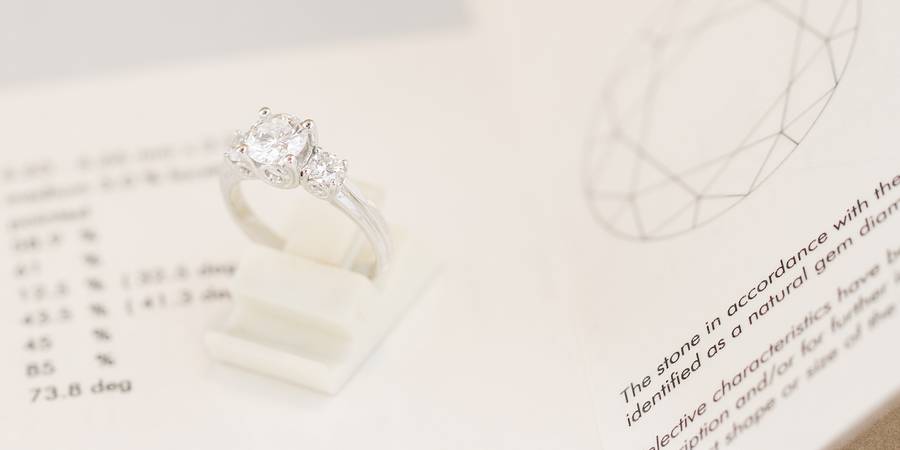
What Are Diamond Certificates?
Accredited gemological labs issue diamond certificates, which are official documents containing detailed information and grades for each characteristic of a diamond. These characteristics include cut quality, carat weight, color, and clarity, all of which significantly impact the diamond’s price.
When purchasing a diamond, it is essential to receive and review the corresponding lab report for each stone. This document provides a comprehensive description of various elements of the diamond, including color, clarity, angles, width, and length.
Experienced diamond professionals assess these dazzling gemstones using specialized tools such as a loupe or microscope.
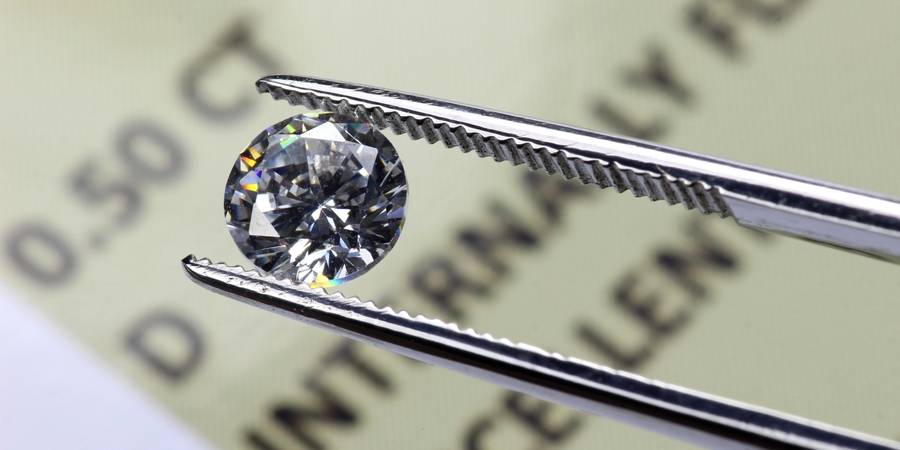
Benefits Of Certified Diamonds
Opting for a certified diamond provides several advantages, ensuring that you are making a well-informed and reliable purchase. Here are some key benefits of purchasing a certified diamond:
- Verified Quality: With a certified diamond, you have tangible proof that the gemstone’s quality has been thoroughly examined. This verification gives you confidence in the characteristics of the diamond, rather than solely relying on the retailer’s claims.
- Higher Value: Certified diamonds generally hold higher value compared to non-certified ones, especially when it comes to resale or upgrading. The certification adds credibility and trustworthiness to the diamond, enhancing its market value.
- Simplified Comparison: Certified diamonds make the comparison process easier. The grading based on the 4 C’s (cut, carat weight, color, and clarity) provides a standardized and objective basis for evaluating and comparing different stones. This eliminates the need for subjective visual inspection alone.
- Confidence in Online Purchases: When shopping with online retailers, having a certified diamond brings reassurance. You can trust the quality and specifications stated in the certificate, making online purchases more secure.
- Informed Decision-Making: A diamond grading report plays a crucial role in helping you make an informed decision. It provides comprehensive details about the diamond’s quality, allowing you to assess its attributes accurately.
By choosing a certified diamond, you gain peace of mind, knowing that the quality and value of your purchase are substantiated by an independent grading entity. This ensures satisfaction and confidence in your buying decision.
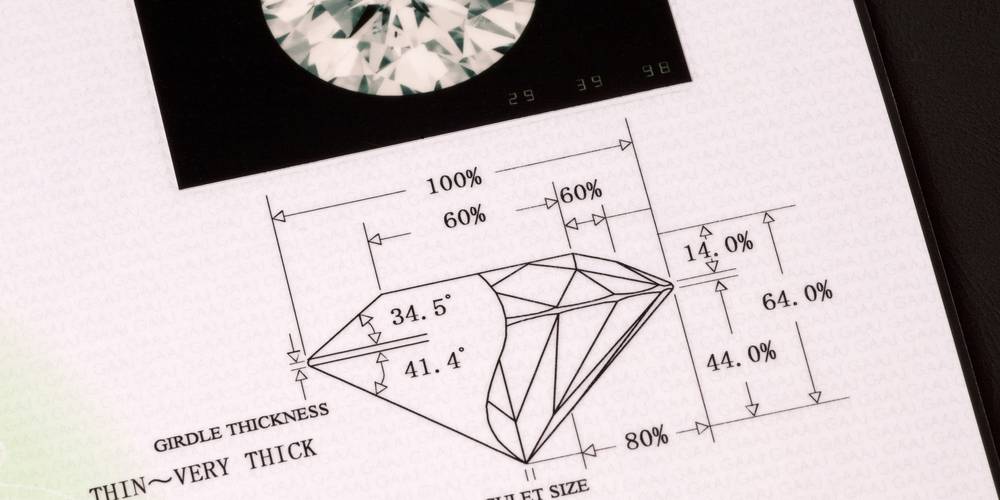
Diamond Certificate Vs Diamond Appraisal
In the world of diamonds, two terms that are often mistakenly interchanged are diamond certificates and diamond appraisals. It is important to understand the distinction between these two.
A diamond appraisal is a document that assigns a monetary value to a diamond. Its primary use is to determine the appropriate amount of insurance coverage for the diamond. The appraisal focuses on assessing the diamond’s financial worth.
On the other hand, a diamond certificate does not assign a monetary value to the gem. Instead, its purpose is to evaluate and document the key qualities and characteristics of the stone. The certificate provides an objective assessment of the diamond based on factors such as its cut quality, color, clarity, and carat weight.
While a diamond appraisal focuses on the financial aspect of the stone, a diamond certificate provides a comprehensive evaluation of its intrinsic qualities. It is important to recognize that these two documents serve different purposes in the diamond industry.
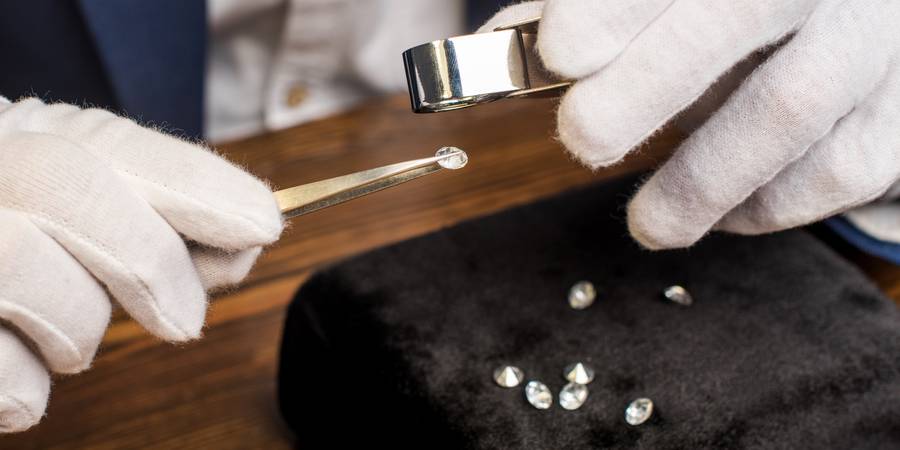
Getting A Jewelers Appraisal
Diamond appraisals can be obtained from jewelers, and they can provide both written and verbal assessments of a diamond’s characteristics. These appraisals are based on the jeweler’s professional opinion, which is used to estimate the value of the stone.
Advantages of Diamond Appraisal:
- Quick Assessment: One of the main benefits is the ability to receive a diamond appraisal on the same day. This allows for timely evaluation and decision-making.
- Identification of Certified Diamonds: An appraisal may reveal if the diamond has a lasered certificate number, indicating that it has been graded and certified by a reputable laboratory. This information can contribute to a more accurate assessment of the stone.
- Guidance for Comparisons: Diamond appraisals can provide guidance on important factors like color and clarity, allowing you to make price comparisons when shopping around. This information helps ensure you receive fair pricing.
- Insurance Purposes: Having a documented appraisal enables you to correctly insure the diamond during transportation and safeguard your investment.
Disadvantages of Diamond Appraisal:
- Subjective Opinion: The information included in a diamond appraisal represents the opinion of a specific jeweler and may not align with the grading standards of renowned laboratories. It’s important to consider multiple appraisals for a comprehensive assessment.
- Limited Resale Value: Diamond appraisals typically provide a New Replacement Value for insurance purposes, rather than an actual resale value. When selling your diamond, it’s essential to understand that the appraised value may not be achievable in the market.
- Appraisal Costs: Obtaining a diamond appraisal can come with a cost, which can be around $100 or a percentage of the appraised value of the diamond. This expense should be considered when seeking an appraisal.
- Value Enhancement: While a diamond appraisal provides valuable information, it does not inherently increase the value of the diamond. It serves as a tool for accurately marketing the stone based on its assessed characteristics.
Understanding the advantages and disadvantages of diamond appraisals can help you make informed decisions when evaluating and selling your diamond.
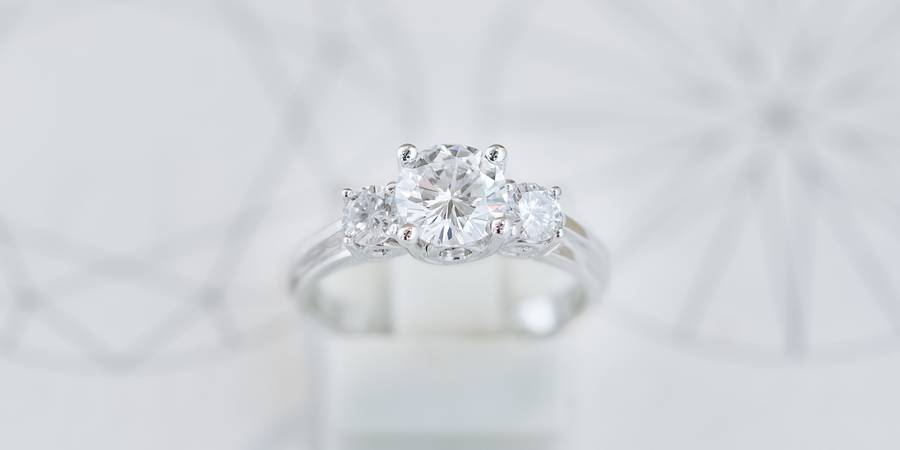
Where Can I Sell My Diamond Without A Certificate
Here are some potential options for selling your uncertified diamond:
- Jewelry Stores: Jewelry stores can be a reliable choice for selling your diamond without a certificate. While they may offer a lower price than the actual worth of the diamond, it provides a convenient and safe selling option.
- Pawnshops: Similar to jewelry stores, pawnshops might offer a lower price for your diamond, especially without a certificate. However, if you need to sell quickly, a pawnshop could be worth considering, even though you may receive less than the diamond’s actual value.
- Online Selling Platforms: Many people opt to use online selling platforms for their convenience and potential to secure a better price. Selling online offers benefits such as more control over the sale, higher chances of negotiation, and exposure to a wider range of buyers. However, selling online requires effort and caution to ensure safety and avoid scams.
It’s important to manage expectations when selling a diamond. While some may hope to recoup a significant portion of their original purchase price, it is unlikely. When selling online, it’s essential to be aware that the selling price will likely be lower than the initial cost of the diamond.
Remember to prioritize your safety and be vigilant against potential scams when selling online.
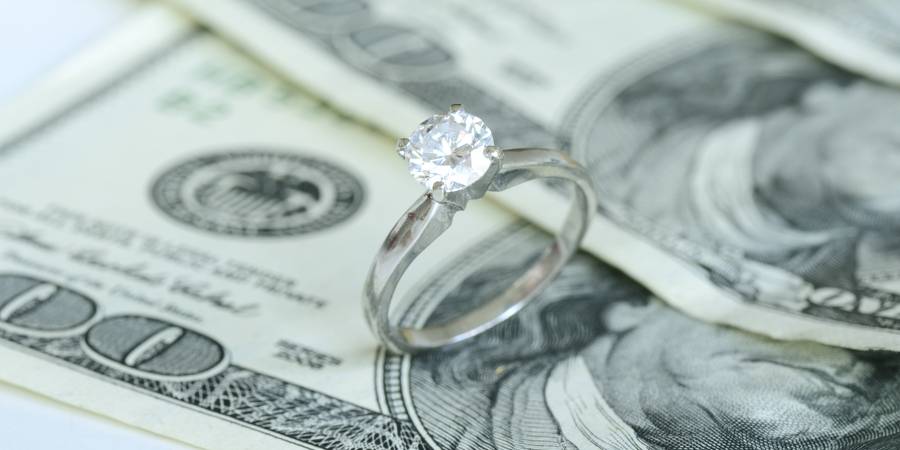
Are You Ready To Sell Your Diamond?
Here are some considerations to keep in mind before deciding to sell your diamond:
- Set a Realistic Price: Avoid setting unrealistic expectations for the price of your diamond. Seek an appraisal to get an idea of its potential value in specific markets. Discuss pricing strategies with the appraiser, who can provide insights into current market trends and potential resale value. Alternatively, conduct your own research by looking up prices of similar diamonds sold online and in retail stores, factoring in a discount for a pre-owned diamond.
- Investigate Your Selling Options: Consider whether to sell to the diamond jewelry industry or the public. Selling to industry insiders, such as jewelers, diamond dealers, or pawnbrokers, can offer a quick and secure transaction. However, expect to receive less than the diamond’s actual value since industry buyers aim to make a profit. Selling to the public may fetch a higher price, as buyers seek retail savings. Online selling platforms can be successful but require caution to avoid scams. Another option is consigning your diamond to a shop or dealer, but be aware that they will take a commission.
- Be Emotionally Ready to Sell: Diamonds often hold sentimental value, but when selling, it’s important to detach emotions from the process. While the diamond may have personal significance, potential buyers view it as a commodity. Being emotionally prepared will help you make objective decisions throughout the selling process.
Remember to approach the sale of your diamond with realistic expectations, consider various selling options, and separate emotional attachment from the transaction.
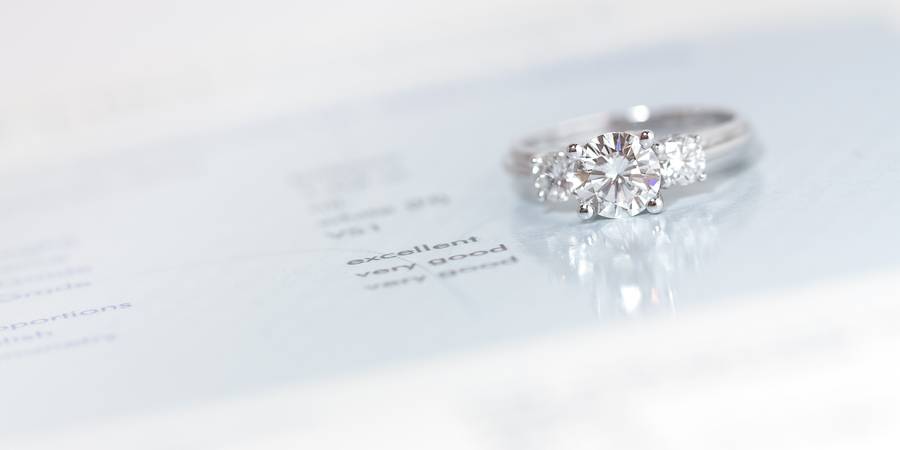
Conclusion
If you’re unsure about selling a diamond without a certificate, here’s a summary:
While obtaining a certificate is generally recommended to increase the chances of selling a diamond, it is still possible to sell it without one. You can approach jewelers or pawnshops, even without a certificate, as they offer the advantage of quick sales. However, keep in mind that they may offer lower prices to ensure their own profit, regardless of certification.
Another option is to sell your diamond on an online selling platform. This avenue often provides better deals compared to selling to a jeweler. However, exercise caution and find genuine buyers to avoid scams.
Lastly, it’s crucial to be realistic about the value of your diamond. Understand that you may not recoup the amount you initially paid for it, and be prepared to sell at a loss.


